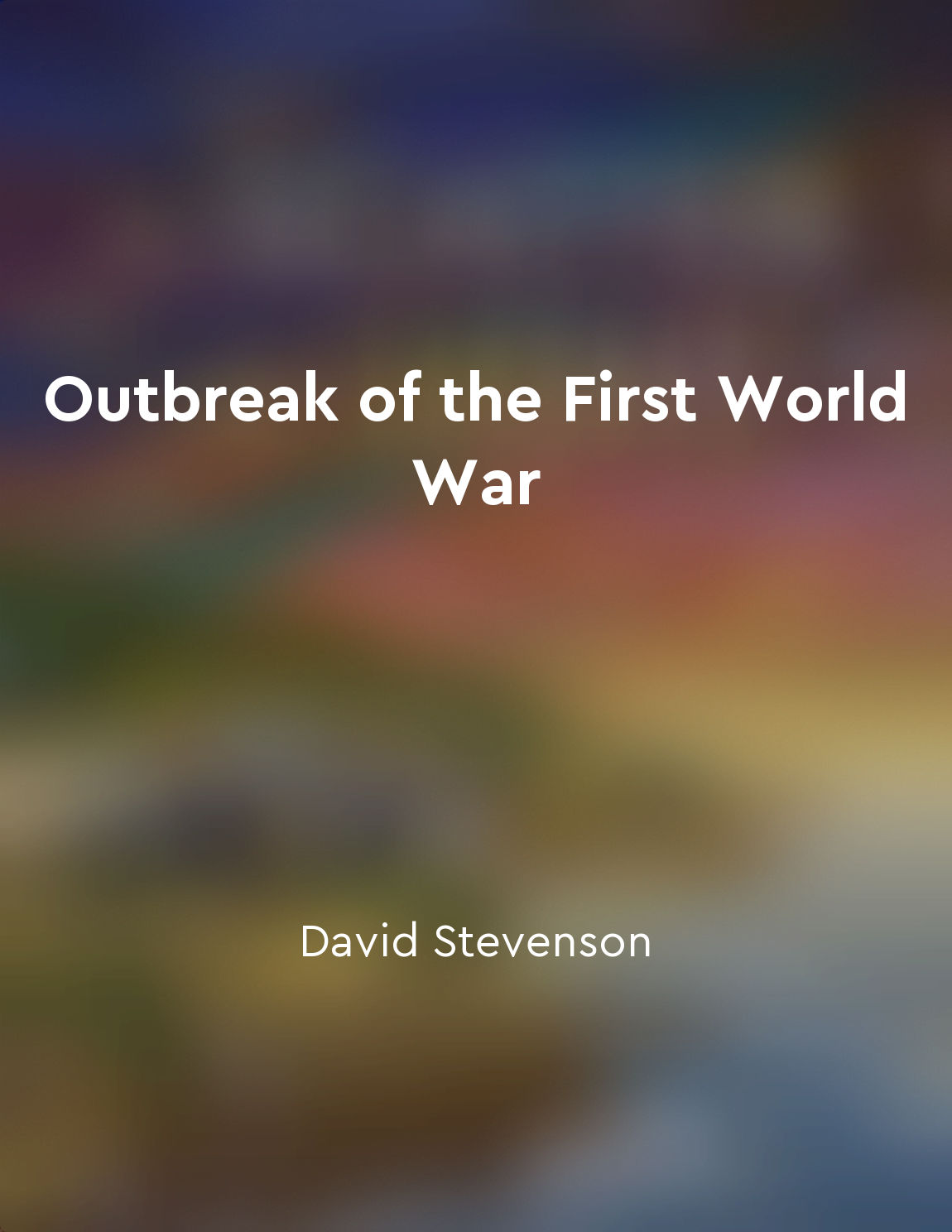Battles on multiple fronts from "summary" of Outbreak of the First World War by David Stevenson
The concept of battles on multiple fronts was a defining feature of the First World War. Unlike previous conflicts, which had often been fought on a single front or in a limited geographic area, the First World War involved fighting on multiple fronts simultaneously. This multi-front nature of the war was a result of the complex web of alliances and treaties that existed in Europe at the time. When one country declared war on another, it would often trigger a chain reaction, drawing in other countries that were bound by treaty to come to the aid of their ally. As a result, the war quickly spread across Europe, with battles being fought on the Western Front between France and Germany, on the Eastern Front between Germany and Russia, and on the Italian Front between Italy and Austria-Hungary, among others. This meant that the combatants had to divide their resources and manpower across multiple fronts, leading to a war of attrition in which neither side was able to achieve a decisive victory. The sheer scale of the conflict, with millions of soldiers fighting on multiple fronts, led to unprecedented levels of destruction and loss of life. The concept of battles on multiple fronts also had far-reaching strategic implications. Commanders had to carefully manage their resources and prioritize their objectives, often having to make difficult decisions about where to allocate their forces and when to launch offensives.- The concept of battles on multiple fronts was a central feature of the First World War, shaping the course of the conflict and its ultimate outcome. It was a war unlike any that had been seen before, with fighting taking place on a scale and intensity that had never been experienced.


